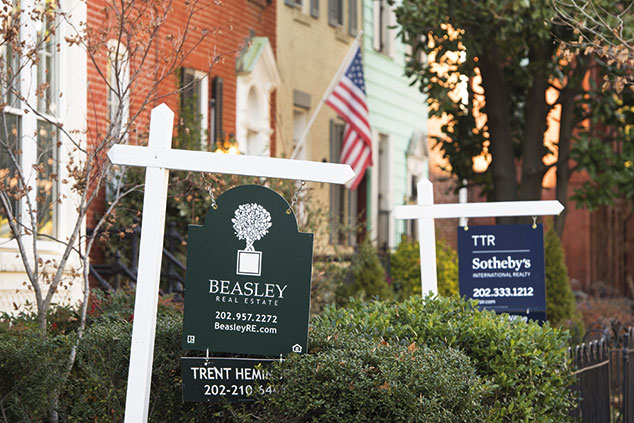
This is some of the weakest data seen since house prices finally began to recover after the financial crisis shock in 2012. Shiller argues that is a reason for concern, especially given that the US housing boom, which began in 2012, has been the third strongest since 1890. Prices for existing homes, as opposed to new-builds, have gained nearly 55% in seven years.
House price gains are now slowing the most in large markets, “where… prices had overheated over the past three years,” says Diana Olick on CNBC. The Case-Shiller National Home Price index (measuring average house prices in major metropolitan areas across the US) slowed from 5.3% year-on-year in October to 5.2% in November. In December, LA house prices grew by just 1%.
Demand has dropped
A correction was “long overdue,” Daryl Fairweather, chief economist at Redfin, told Finanz und Wirtschaft. One key factor is a slowdown in demand thanks to higher mortgage rates. These have followed the nine increases in short-term interest-rates by the US Federal Reserve. Meanwhile, higher prices and tougher lending standards have deterred young workers, while millennials’ high student debt has also undermined demand. The tendency to start families later, moreover, means they take longer to move into a single-family home. Baby boomers are working longer too, so they aren’t moving out of homes as quickly as they used to. Every third 18- to 34-year old lives at their parents’ home.
No wonder, then, says Richard Henderson in the Financial Times, that US homebuilders’ confidence has slipped to a four-year low. The softening housing market and the slide in homebuilders’ stock prices “could be a sign of big trouble ahead,” says Henderson. The Dow Jones Home Construction index and sales volumes started to slide in 2005, before actual house prices began to weaken in 2006. A broader downturn followed 12 months later.
Don’t expect another crisis
“The problematic subprime loans – that brought about the financial crisis over a decade ago – are no longer an issue,” says Fairweather. So the odds of the housing downturn infecting the rest of the economy and causing panic are low. But it’s just one more factor weighing on a US economy already losing momentum as the sugar high from the Trump administration’s tax cuts wears off. A global slowdown elsewhere won’t do much for corporate profits over the next few months either, while valuations remain sky-high. It’s not just investors in homebuilders who face a difficult few months.